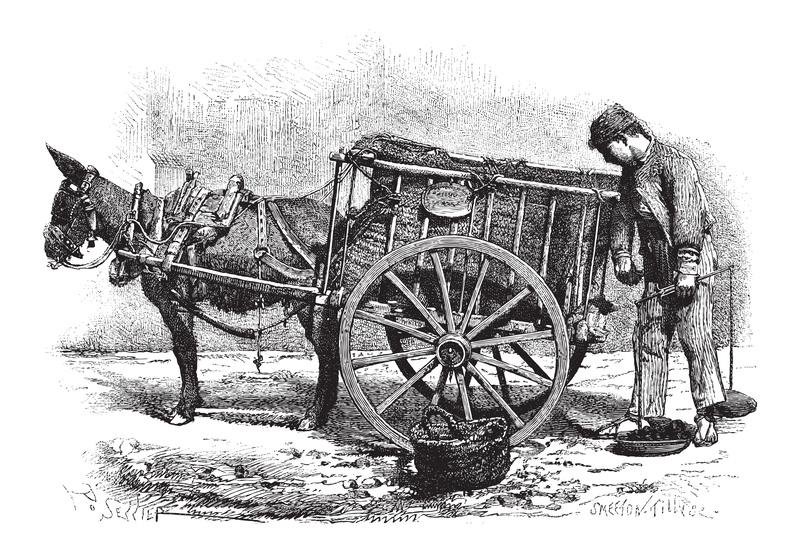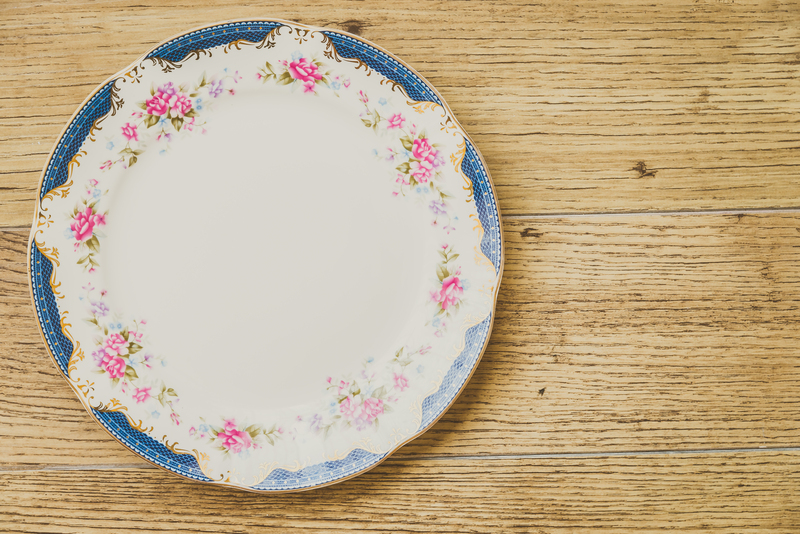Declutter Your Kitchen by Recycling Old Pots and Pans
If your kitchen cupboards are bursting with outdated cookware, it's time to take action. Decluttering your kitchen by recycling old pots and pans not only gives you more space but also supports eco-friendly living. Whether your pans are scratched, dented, or you simply have too many, this guide will show you exactly how to dispose of or repurpose them responsibly. Find effective ways to transform kitchen chaos into order while minimizing your environmental footprint.
Why Declutter Old Pots and Pans?
Sometimes, we hang onto worn-out pans with the best of intentions--maybe for "just in case" or as backups. Over time, though, they pile up and rob you of valuable space and efficiency. Here's why it's important to recycle unwanted cookware and tidy up:
- Improved Kitchen Efficiency: Easier to find and use what you need.
- Safety: Damaged non-stick coatings or warped metal can be hazardous.
- Better Cooking Experience: Enjoy cooking with higher-quality, reliable pans.
- Environmental Impact: Recycling reduces landfill waste and saves raw materials.
- Aesthetics: A neater kitchen uplifts your mood and motivation to cook.

How to Assess Your Pots and Pans
Before you start removing cookware, take stock of what you own. Lay everything out and honestly assess their condition. Ask yourself:
- Is the surface scratched, warped, or broken?
- Do you use this pot or pan regularly?
- Does it have sentimental value or special features?
- Could it be repaired or upcycled?
Once you've answered these questions, divide your collection into "Keep," "Donate," "Recycle," and "Upcycle" piles.
What to Do With Old Pots and Pans
1. Recycle Old Pots and Pans Responsibly
One of the most sustainable ways to dispose of cookware is to recycle. However, recycling rules vary by location and the type of material. Most pots and pans are made of metals such as aluminum, stainless steel, or copper--all of which are highly recyclable.
- Contact Your Local Recycling Center: Ask if they accept old cookware. Some require you to remove non-metal parts (like handles, lids, or glass covers).
- Scrap Yards: Many scrap metal facilities will take pots and pans, especially if they're 100% metal.
- Special Collection Days: Watch for household recycling events or bulk collection drives in your community.
Expert Tip: Remove plastic or wooden handles and recycle them separately if possible. Group similar metals together for easier processing at recycling centers.
2. Donate Usable Cookware
If your old pots and pans are still in good working order, consider donating those items. Many organizations, such as shelters or food banks, accept gently used cookware. Some suggestions include:
- Charity thrift stores (e.g., Goodwill, Salvation Army)
- Community centers or soup kitchens
- Churches or schools
- Young adults moving into their first apartment
Always clean cookware before donating and check the organization's guidelines on what they'll accept.
3. Upcycle Old Pots and Pans Creatively
Not all cookware is destined for recycling centers. There are plenty of innovative ways to re-purpose old pots and pans around your home or garden. Here are some fun and practical ideas:
- Planters: Fill an old pan with soil and use it for herbs or succulents. Drill holes for drainage.
- Bird Feeders: Hang an old pan from a tree and fill it with birdseed.
- Kitchen Organizers: Use deep pots for storing utensils, napkins, or cleaning supplies.
- Wall Decor: Paint and hang interesting pans as unique wall art.
- Candle Holders: Pour wax into small pans to make rustic candles.
Get creative and give new life to those old items--sometimes the most beautiful decor starts as kitchen clutter!
Tips for a Clutter-Free Kitchen
Once you've recycled, donated, or upcycled excess cookware, keep your kitchen tidy with these ongoing habits:
- Annual Inventory: Review and clear out unused kitchen items yearly.
- Buy Quality: Invest in versatile, durable pans to reduce replacements.
- Storage Solutions: Use organizational tools--like racks and dividers--for easy access.
- One-In, One-Out Rule: When you buy a new pot or pan, donate or recycle an old one.
- Educate Family: Explain your kitchen decluttering goals to everyone in your household.
Spotlight: Environmental Benefits of Recycling Cookware
Recycling old cookware has a significant positive impact on the environment. Metals are infinitely recyclable, meaning your discarded pan could become part of a new car, building, or another pan!
- Reduces Landfill Waste: Keeps non-biodegradable materials out of dumps.
- Conserves Resources: Lowers demand for virgin raw materials.
- Saves Energy: Recycling metal saves energy compared to mining and refining new ore.
- Reduces Emissions: Minimizes greenhouse gases produced during new manufacturing.
By choosing to declutter your kitchen by recycling old pots and pans, you're making a positive difference for our planet.
Frequently Asked Questions About Recycling Cookware
Can you recycle non-stick pans?
Most recycling centers prefer clean, plain metal. However, non-stick coatings (like Teflon) can complicate recycling. Check with your local facility about their requirements--some accept coated pans but may ask you to remove as much of the coating as possible.
How do you recycle pots and pans with plastic handles?
Remove plastic or wooden handles first if possible. Some metals recyclers will accept pans with handles, while others require you to break them down. Always call ahead and check your local guidelines.
Are there companies that accept old cookware by mail?
Yes! Several manufacturers and eco-friendly companies offer mail-in recycling programs for cookware. GreenPan and some other cookware brands allow you to send in old pans for responsible recycling. Research online to find current programs.
Can I sell old pots and pans?
If your pans have unique or vintage value, you may be able to sell them via online classifieds, marketplaces, or consignment shops. Be honest about their condition and age in your listings.

Conclusion: Transform Your Kitchen and the Planet
You don't need to tolerate a drawer full of unused or broken cookware. By making smart choices to recycle, donate, or upcycle old pots and pans, you'll free up space, foster a more enjoyable cooking environment, and contribute to a healthier planet. Start with small steps--sort your collection, see what you can give away or reuse, and look up your nearest recycling options. A clutter-free kitchen is only a few decisions away!
Ready to begin your kitchen transformation? Start today and experience the benefits of decluttering by recycling old pots and pans. Your home--and the environment--will thank you!
